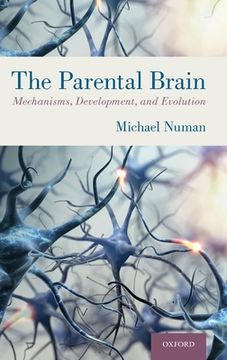Share
The Parental Brain: Mechanisms, Development, and Evolution
Michael Numan
(Author)
·
Oxford University Press, USA
· Hardcover
The Parental Brain: Mechanisms, Development, and Evolution - Numan, Michael
Out of Stock
We'll email you when the book is available again
Synopsis "The Parental Brain: Mechanisms, Development, and Evolution"
The Parental Brain: Mechanisms, Development, and Evolution presents a comprehensive analysis of how the brain regulates parental behavior in nonhuman animals and in humans, how these brain mechanisms develop, and how such development can go awry, leading to faulty parental behavior. Further, the proposal is examined that the maternal brain served as a foundation or template for the evolution of other types of strong prosocial bonds in mammals, such as the hyper-prosociality that occurs in humans. Unique aspects of this book are its multilevel perspective and the integration and comparison of animal and human research in order to create a complete understanding of the parental brain.Topics covered include the following: - Maternal, paternal, and alloparental behavior- Hormonal regulation of parental behavior- Oxytocin and parental behavior- Subcortical neural circuits regulating parental behavior in nonhuman mammals- The interactions between cortical and subcortical neural circuits that are associated with parental cognitions, emotions, and behavior in humans- How maternal care directed toward one's infants influences the development of the parental brain in the affected infants- The intergenerational transmission or continuity of normal and abnormal maternal behavior- The involvement of epigenetics and gene by environment interactions in the development of the parental brain- Evolutionary perspectives on the parental brain, particularly with respect to alloparenting and cooperative breeding that have provided a framework for appreciating how the parental brain could have provided a foundation for the hyper-prosociality that occurs within human social groups This book will be a valuable resource for behavioral neuroscientists and neuroendocrinologists, social neuroscientists, developmental psychobiologists and psychologists, anthropologists, and evolutionary psychologists with an interest in parental behavior, mother-infant relationships, child development, and the evolution of prosocial behavior.

